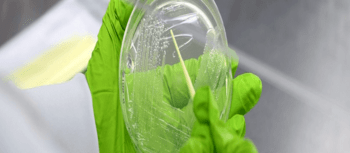The sudden lockdown imposed in the wake of the Covid-19 posed both a challenge and opportunity for India’s healthcare startups. Restricted access to diagnostic centres meant more patients embraced online consults and solutions. But limited imports meant broken supply chains that led to prices of raw materials in the domestic market to skyrocket
BloombergQuint spoke with three healthcare startups to better understand how they made the most of the opportunities, while dealing with the lockdown challenges.
More Users, Scaling Up
That’s why five-year-old BeatO—a platform for diabetic patients to monitor their blood-glucose levels—saw engagement level increase by as much as 30-40%, said founder Gautam Chopra. Due to the Covid-19, growth for the company has come “much sooner and faster”, he said.
But the stress of the lockdown, limited access to diagnostics, more patients going out of normal range also meant scaling up.
First four weeks into the lockdown, Chopra said, 10% of users—who otherwise had perfect glycemic control—went out of range by 30-40%, which was very abnormal.
“People could not go to doctors and specialists. Medicine supplies, sugar test strips were difficult to obtain. During the last couple of weeks, we developed a Virtual Endocrine Clinic platform assisting doctors—GPs, diabetologist, endocrinologist — to video/tele call patients on BeatO App. We also doubled down on interventions through our Intelligent Nudging System to educate users on lifestyle changes, diet, etc. based on the data they were inputting”.
But any technology, more so in the healthcare space, has to deal with trust issues. BeatO is experiencing it as well. For instance, one of the users in a review on AppStore says: “For a non-diabetic, the app is showing a fasting sugar value as 150 mg/dL
At a time when users can’t access diagnostic centres and are only relying on the application to measure blood sugar levels, aren’t such inconsistencies worrisome?
Chopra says while the constant aim is to make the data more accurate, users should treat platforms like his as pre-boards.
All of us have given board exams and your HbA1c test—which one would get after three months or six months—is like a board exam. So, it is fair to say that if your pre-boards are not moving in the right direction, unfortunately it’ll be difficult to score well in your board exams as well.
There is a level of awareness and education that an individual needs because this is self-monitoring, he said. “You can’t compare the readings that come out of a monitor to a venous blood sample taken and diagnosed by a lab- typically, there is a variance of around +/-15 percent compared to a lab reading,” Chopra said.
Safer Transportation, Pricey Raw Material
Incubated by Society for Innovation and Development, Indian Institute of Science in 2016, Azooka Life Sciences is trying to solve two problems—manufacturing RT-PCR test kits and providing hospitals and diagnostic centres with a safe medium to transport Covid-19 samples.
RT-PCR has been recognised by the Health Ministry as the ‘gold standard’ frontline test for Covid-19. India imports most of these kits from companies like Thermo Fisher Scientific, Altona, etc., said co-founder Alex Paul. With imports becoming limited, expensive and demand for test kits increasing exponentially, the company decided to manufacture RT-PCR kits and its proposal is pending approval from the Indian Council For Medical Research.


 May 20, 2020
May 20, 2020